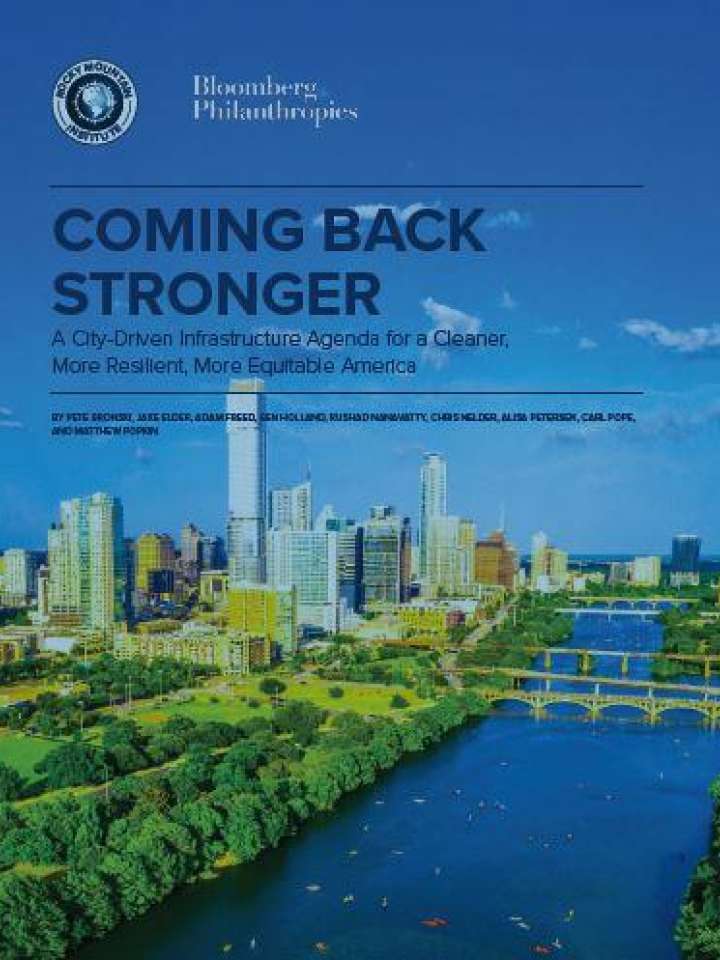Coming back stronger: A city-driven infrastructure agenda for a cleaner, more resilient, more equitable America
This report summarizes infrastructure projects and policies that are critical for building city infrastructure, supporting economic growth and recovery, protecting public health, and achieving climate goals. The report offers ideas on improving resilience and inclusion across six sectors of the American society, highlighting city success stories for each.
- Access and mobility: Infrastructure spending should reclaim automotive space and funding for people, transit, and mobility alternatives, while also accelerating vehicle electrification.
- Buildings: Infrastructure spending should be focused on rebuilding America’s schools, affordable housing, and commercial buildings through a national buildings upgrade effort that delivers deep retrofits for existing building stock along with efficient, all-electric, grid-interactive new construction.
- Power: Infrastructure spending should be focused on retiring our remaining coal power and deploying clean energy portfolios, enabled and accelerated by grid upgrades and regulatory reform—in the service of ensuring our electricity is affordable, clean, and reliable.
- Broadband: Infrastructure spending should be focused on expanding affordable, widespread broadband access via competition and municipal or public-private partnership programs.
- Water: Infrastructure projects should be focused on providing clean drinking water for all Americans while managing both drought and flood risk by upgrading our water distribution infrastructure (including lead service line replacement), sewage treatment improvements, a national water conservation program, and green stormwater infrastructure.
- Natural systems: Infrastructure projects should be focused on protecting and enhancing natural systems (“green infrastructure”), both buffering and serving as an alternative to human-made systems (“grey infrastructure”), while ensuring that every American has access to green space.
The report argues that investing in “future-proof” American infrastructure can create much-needed jobs and economic recovery, help confront massive social inequalities, accelerate the clean energy transition, and prepare communities to withstand the climate instability that they are already experiencing.
Explore further
